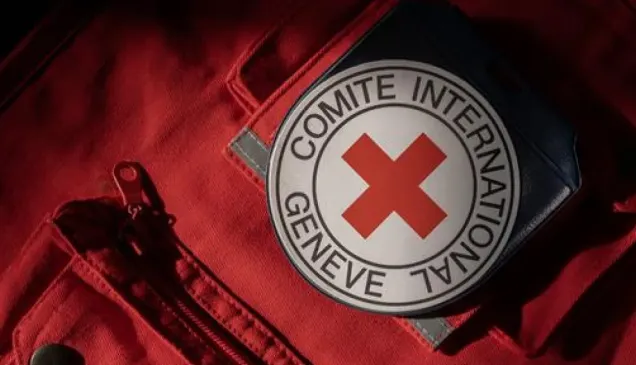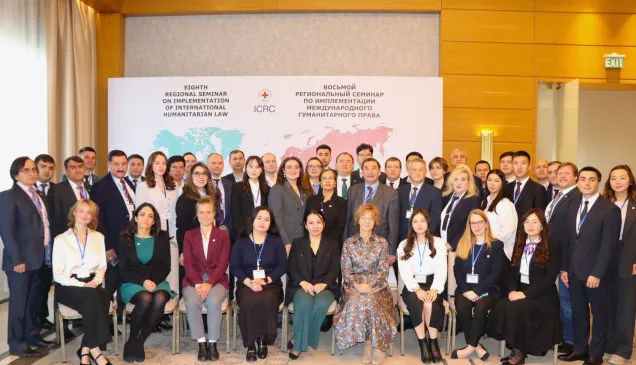Armenia: Helping health-care professionals acquire essential life-saving skills
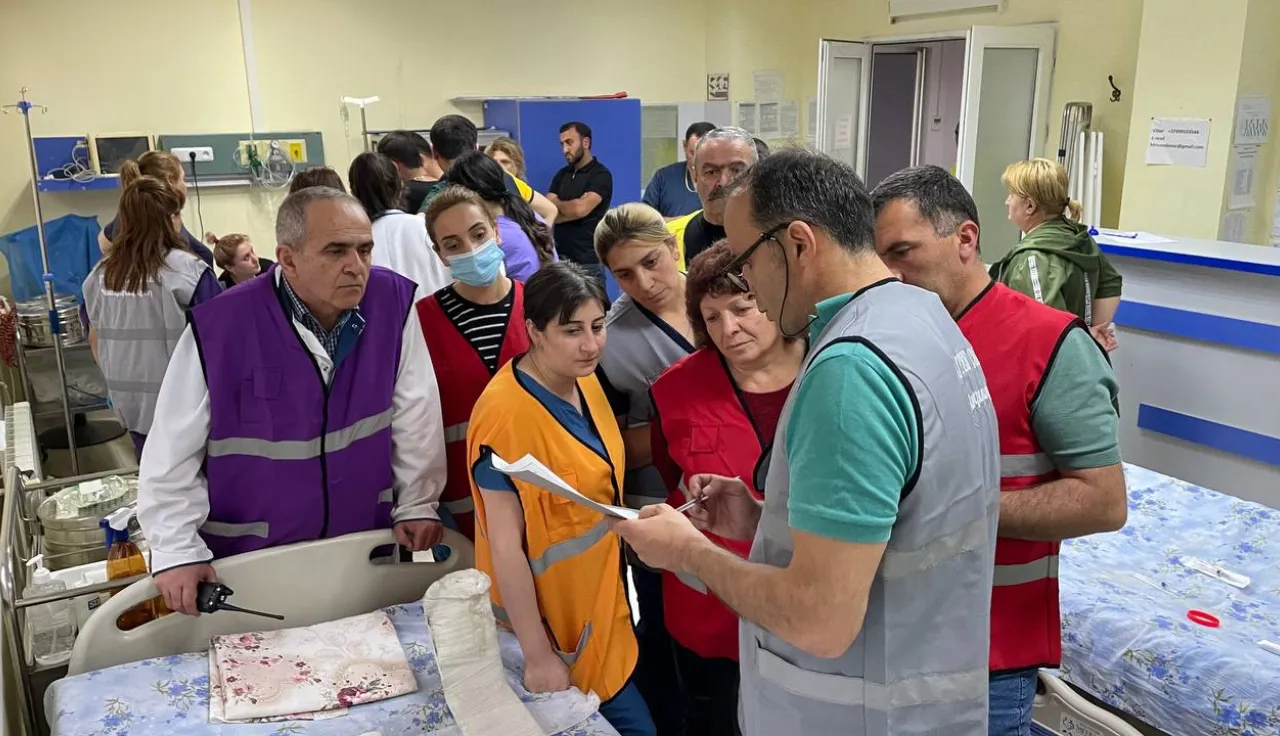
"I will never forget how I felt when I saved a patient's life for the first time,” said Astghik Hovsepyan, a nurse who has been working at the Vayk Medical Center, a major hospital in the Vayots Dzor region, since 2015.
Over the years, Astghik has been keen on constantly enhancing her knowledge and skills to provide better life-saving care and support. Her efforts have included participation in various training sessions organized by the International Committee of the Red Cross (ICRC), including a course on Basic Life Support which she considers invaluable to her career.
“In a conflict-affected country, where resources and opportunities are scarce, the preparedness of medical personnel is vital for a prompt and appropriate response to emergencies,” emphasized Astghik. She believes these training sessions are important, as they introduce new techniques that are useful in various situations, particularly in Armenia's border communities, where the need for quick and effective medical responses is often critical.
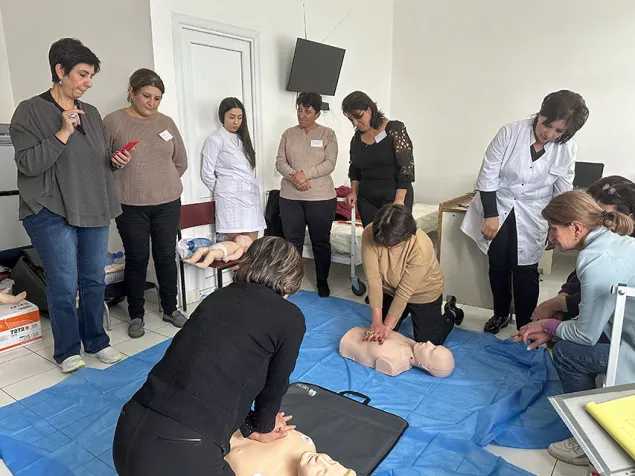
By putting into practice the key elements that she learned from the training, Astghik has been able to save lives in crucial moments. For instance, the vital impact of her training was visible when a 27-year-old patient from Karabakh was admitted to the Vayk Medical Center following an accident. The patient, who also had a chronic illness, experienced cardiac arrest upon arrival.
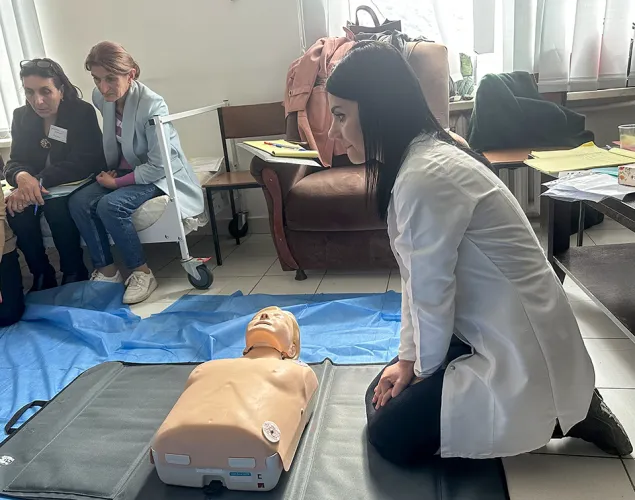
Using the acquired skills, Astghik performed cardiopulmonary resuscitation (CPR) and successfully revived the patient. She felt confident in her ability even though it was the first time, since she began working at the medical centre, that she had performed CPR on a patient. The following day, she called her ICRC trainer to express gratitude for helping her learn and develop such precious skills that saved a life.
Astghik’s transformative experience highlights the effectiveness of our training programmes, which aim to bolster the emergency response capabilities of Armenia’s health-care professionals.
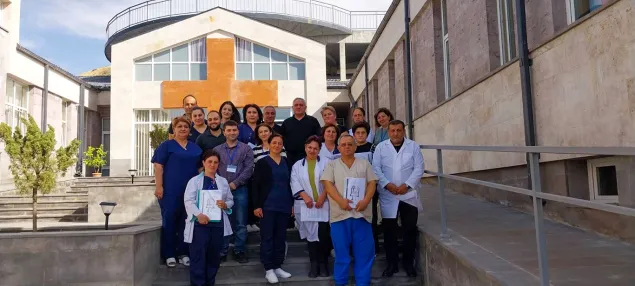
Recognizing the demand for rapid and proficient medical responses in Armenia's border communities, the ICRC organizes courses on Basic Life Support, Basic Emergency Care, Prehospital Trauma Life Support, and First Aid for nurses, physicians and emergency staff. These sessions equip health-care professionals with structured approaches to handling life-threatening conditions in critical moments.

